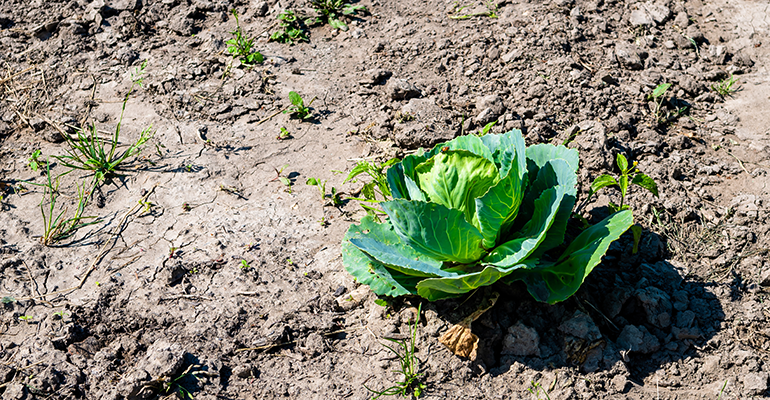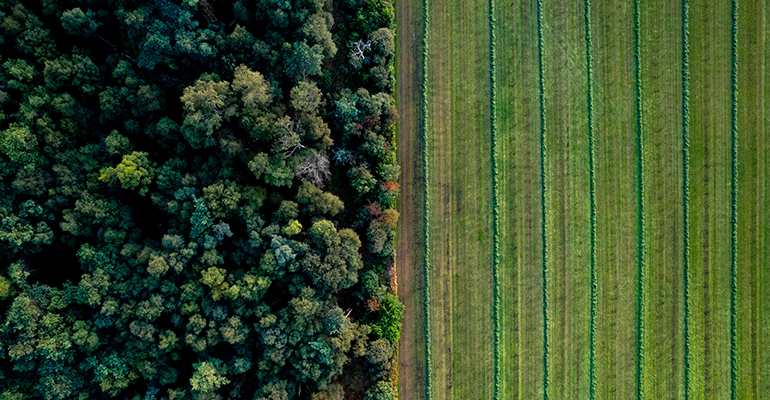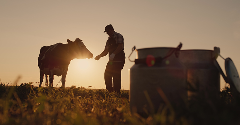News
Food production needs climate-conscious overhaul
18 Apr 2023
As climate change threatens global food security, urgent action is required to protect food production and secure future supply, say scientists – but is industry ready to act?
A new report by the United Nations’ Intergovernmental Panel on Climate Change (IPCC) warns of climate change’s detrimental effects on the quality and growth of global food production.
On 20 March 2023, the IPCC’s final instalment of its Sixth Assessment Report was released. The UN’s intergovernmental body warns that food, fibre, and other ecosystem products are affecting greenhouse gas emissions (GHGs). Their impact leads to climate change drivers, such as increasing temperatures, altered precipitation, rising sea levels, extreme events, droughts, and floods.

Climate-driven food and water insecurity is anticipated to rise as warming rises. Global warming is modifying the distribution, growing area suitability and timing of important biological events required for food production. For example, warming changes how flowers and insects grow, affecting food quality and harvest stability. Making changes in the food sector can, however, lower GHGs, the IPCC says.
Insecurity and livelihoods
Climate change affects every person on the globe. However, the IPCC emphasises how vulnerable groups of people such as women, children, low-income households, Indigenous or other minority groups and small-scale producers are often at higher risk of malnutrition, livelihood loss, rising costs and resource competition. “Increasing competition for land, energy and water exacerbates impacts of climate change on food security,” the report states.
Increased climate variability and extreme events like droughts, floods and marine heatwaves contribute to the reduced availability of food and increasing prices. Environmental extremes affect the productivity of agricultural and fishery sectors. A lack of supply combined with price hikes cause negative consequences for food security, nutrition ,and livelihoods.
Food waste and loss
Reduced food waste and loss are considered viable, increasingly cost-effective and largely accepted ways to mitigate climate change. However, amid the cost-of-living crisis, financial pressures may threaten consumers’ ability to prioritise environmental consciousness over price.
An economist will tell you that vegetables are cheap, with lower-than-market inflation, Veg Power, a not-for-profit alliance, says, before continuing, a nutritionist will tell you that vegetables are expensive when measured in terms of cost per calorie.
“At Veg Power, our expertise is behaviour change, and our analysis is that lower-income family shoppers don’t think in either of these terms,” says Dan Parker, CEO of Veg Power. “The key to keeping healthy food in lower-income baskets is not simply lower prices, it is giving parents greater confidence that the food will be eaten.”
Crop handling
Crop-based systems are pivotal in the food supply chain and manufacturers’ production choices. Availability and security are vital for manufacturers in new product development (NPD) and roll-out.
Crops such as cereals, vegetables, fruit, roots, tubers, oilseeds, and sugar amount to approximately 80% of the dietary energy supply, the Food and Agricultural Organization (FAO) found. A 2019 working paper found that these crops are a significant source of income for around 600 million farms worldwide, 90% of which are family farms.
Forestry systems have a crucial role in providing food supply for millions of people around the globe. Although they are small in number, insights indicate that many local communities worldwide are highly or completely dependent on forests for their food supply. Research has found that Indigenous peoples and local communities manage at least 17% or 293,061 million metric tonnes of the total carbon stored in the forestlands.
 © AdobeStock/Maarten Zeehandelaar
© AdobeStock/Maarten Zeehandelaar
Alternative protein sources
Aquaculture delivers more fish for human consumption worldwide than wild capture fisheries. It is a trend that is set to continue, with the FAO expecting provisions to reach 60% by 2030, the report states. Global aquaculture production hit 82 million tonnes in 2020, comprising fish, crustaceans, molluscs and other aquatic animals from inland, marine systems and aquatic plants in 2018.
The food and livelihoods of many rural people depend on combinations of crops, livestock, forestry, and fisheries. However, to date, insights relating to these mixed systems are minimal, which risks limiting understanding and preventing progress.
Algae, bacteria, yeast and insect diets have the potential to replace fishmeal for aquaculture without affecting nutritional profiles, and fish could be reared on waste by-products of other food production systems. Plant-based and alternative feed substitutions may lower food conversion efficiencies, impacting the farmed seafood’s omega-3 content, causing potential problems for fish and reducing productivity.
Securing the supply chain
The global food system extends beyond food production. Our food value chain and environment influence consumer decision-making. Our global value chain comprises domestic and international transportation, storage, processing, market infrastructure and institutions. Climate change affects the value chain, altering food availability, access, stability, and security.
Manufacturers need to consider their entire value chain. Nutrition-dense foods, for example, are often more perishable and more vulnerable to food storage and transportation infrastructure limitations. Electricity failures, loss of cold storage, and extreme weather events damaging roads and other infrastructure may considerably lower the availability and cost of foods such as fruits, vegetables, fish, meat and dairy that are both perishable and nutritious.
Related news

Empowering innovation in fortification and colouration
13 Nov 2025
Divi’s Nutraceuticals offers a large portfolio of innovative, high-quality ingredients for foods, beverages, and supplements, with bespoke solutions and expert support for product success.
Read more
Danone highlights digestive health as potential ‘tipping point’ for food industry
13 Nov 2025
Danone is betting on a food industry “tipping point” that will bloat the market for healthy products, particularly those related to gut health.
Read more
Standing Ovation and Bel scale up casein production from dairy co-products
11 Nov 2025
Foodtech company Standing Ovation has partnered with cheese specialist Bel Group to manufacture dairy serums for industrial-scale casein production via precision fermentation.
Read more
New UPF standard hoped to offer consumers ‘coherence and clarity’
10 Nov 2025
Ingredients companies are being urged to enter “a new era of partnership and innovation” following the launch of the industry’s first non-UPF verification scheme.
Read more
Whistleblowers accuse UK meat industry of promoting cheap, unsustainable supply
7 Nov 2025
An anonymous group of industry insiders has accused the UK’s biggest food companies of systematically driving down meat quality and welfare standards.
Read more
Cottage cheese makes a comeback as consumers call for cleaner labels
6 Nov 2025
From ice cream to dips and ready meals, cottage cheese is experiencing a renaissance as a high-protein, clean ingredient for health-conscious consumers.
Read more
Bord Bia presents Irish dairy ingredient suppliers at Fi Europe
6 Nov 2025
Dairygold Co-operative Society, The Carbery Group, and Ornua Co-operative: Meet with sustainable producers of Irish dairy ingredients at Food ingredients Europe 2025, Hall 7.2 Stand M18.
Read more
Faravelli at Fi Europe: Showcasing FARA® functional solutions for food and nutra
28 Oct 2025
At Fi Europe 2025 in Paris (stand 72M39), Faravelli showcases FARA® Customized Functional Solutions and a wide ingredient portfolio for food and nutra – delivering quality, innovation, and expertise.
Read more
Agrigum Redefined FIBER
27 Oct 2025
Agrigum has transformed gum acacia into a natural, science-backed fibre that supports gut health, sustainability, and innovation across global food and nutrition applications.
Read more
Expanding boundaries in food & beverage innovation
23 Oct 2025
IMCD and FrieslandCampina Professional expand partnership to deliver Kievit® across EMEA, enabling brands to enhance quality and accelerate time-to-market for tomorrow’s food & beverage creations.
Read more